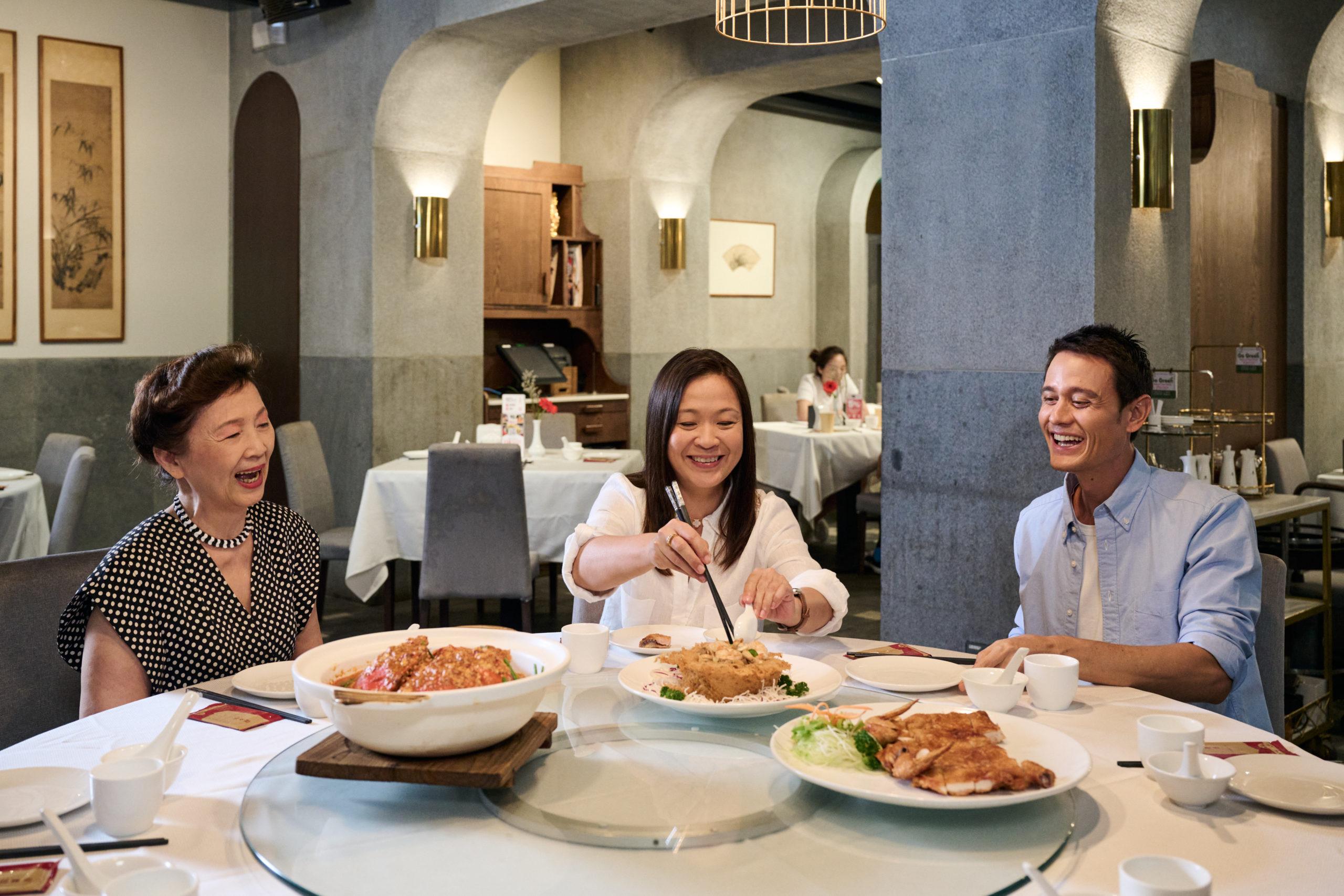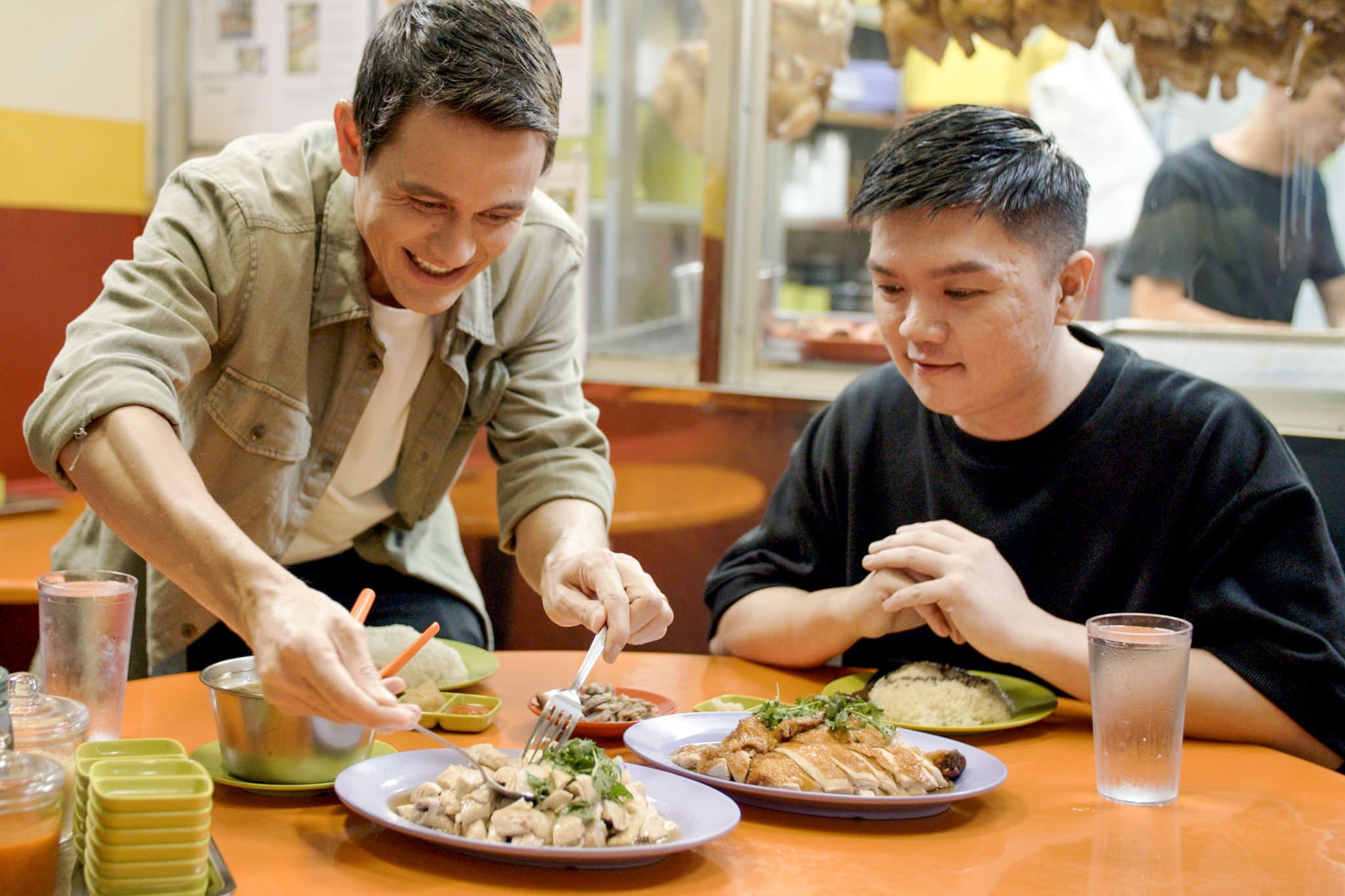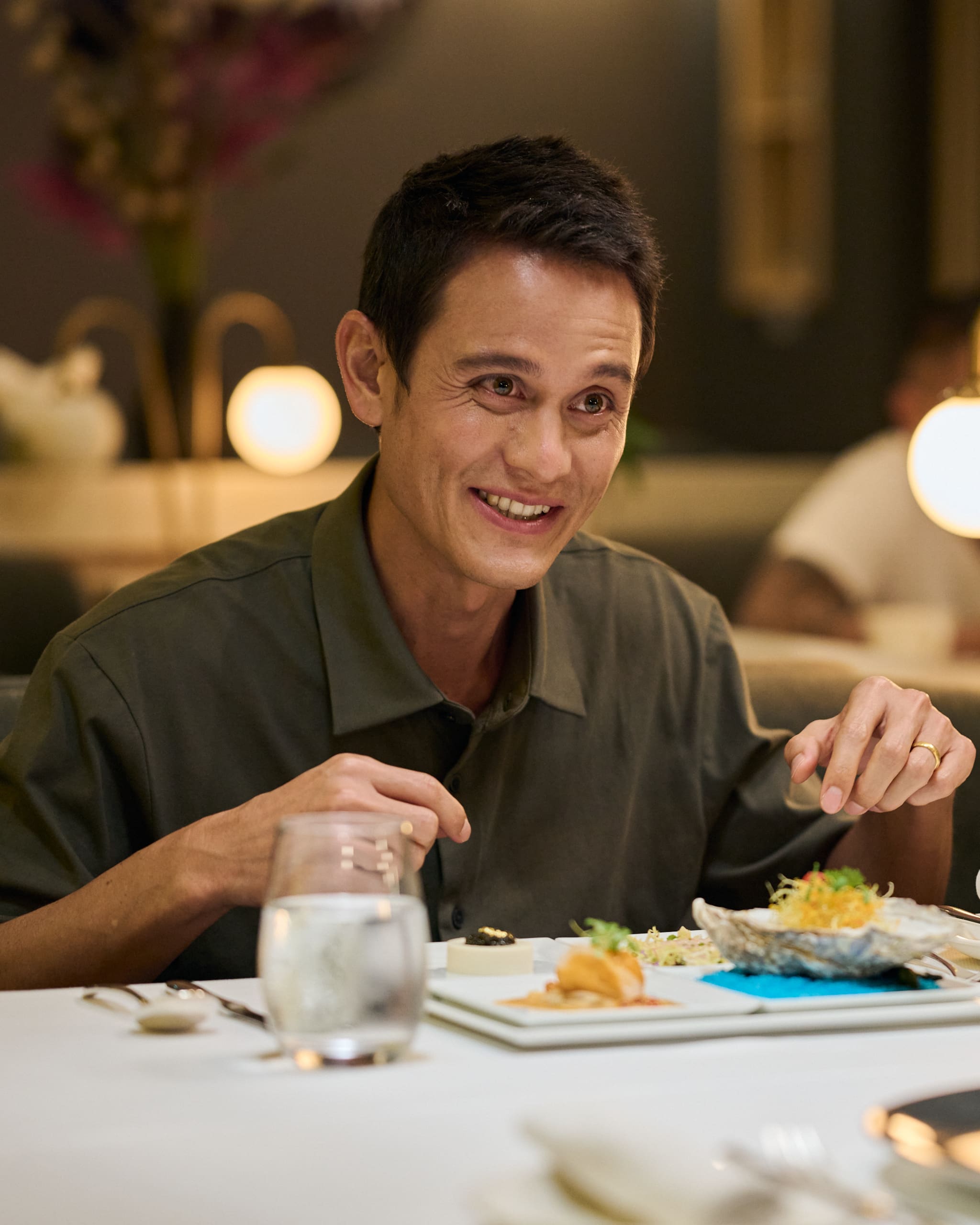Courtesy of HBO Go
The host of HBO Asia’s Food Affair talks all things eating.
Mark Wiens appreciates food. The YouTuber’s 9.4 million subscribers are regularly treated to his animated reaction when sampling street fare around the world: eyebrows raised, eyes wide, smile wrinkling the corners of his eyes, and head cocked back in gustatory ecstasy. “There’s a top 10 list of attractions to see in every city or every place you go. I don’t mind skipping all 10 and just eating,” he tells me while on a food press tour in Singapore. “I still get almost an adrenaline rush from visiting a [new] destination and not really knowing what it is that I’m trying.”
And it shows. On his channel, he’s done everything from exploring Creole food in Tobago to hopping on a tuk tuk to head to Bangkok’s night markets, all while donning his now-signature black “I travel for food” T-shirt. Wiens possesses the uncanny ability to not just find some of the most underrated local gems, but also make each bite seem delicious.
Wiens started out snapping photos of his dishes while traveling for his food blog but quickly realized the medium couldn’t quite capture the full dining experience. “I love to eat street food and when you’re only taking photos, you miss so much of the atmosphere and ambiance. You miss the preparation and you take a bite and you can’t really express your emotion.” So he pivoted to “very minimal, very one-take” videos. Luckily, Wiens had the foresight to predict video would be the next big format and committed to it, despite initially feeling conscious of people’s stares whenever he’d talk into his camera. Since then, he’s amassed a massive loyal following, authored two e-books on Thai dining, and even launched his own ghost pepper powder—a condiment he doesn’t leave without.
Wiens’ whole food journey is preparation for his biggest career move to date. This November, the bonafide social media star hosts his own food docuseries Food Affair on HBO Asia, produced by decorated Singaporean filmmaker Eric Khoo. Over six episodes, Wiens travels throughout Singapore, with each three-part episode featuring a food expert, a fine dining establishment, and a hawker stall. On the show, Wiens explores the cuisines that make up Singapore’s dining landscape, goes deep into their diverse origins, and sheds light on singularly inspiring stories about unassuming hawker stalls that are heritage places in their own right.
Though he’s “still nervous on camera” despite his vlogging tenure, Wiens’ says his upbringing as an American-born, half-Chinese who grew up in the likes of Kenya, Congo, and Tanzania certainly primed his palate—and his appreciation for various cultures. “It was a privilege to be able to grow up in so many different cultures. I think that really did provide a foundation for appreciation of all sorts of diff foods and cultures and peoples. So that was definitely helpful in Food Affair and in a place like Singapore because Singapore is such a diverse country.”

To call Wiens food-obsessed may not be an overstatement. “I prefer eating over cooking,” the self-proclaimed “full time eater” says. But even when he’s just talking about food, Wiens has a twinkle in his eye. Over the two meals we shared in Singapore, I watch Wiens’ face light up after each dish he digs into, as well as the food-centric conversation. He eagerly explains Peranakan’s food origins over lunch and swaps stories about some of the more adventurous meals he’s tried (Thai dancing shrimp, yes. The live squid shots trending on TikTok, no). He’s “always been an adventurous eater,” even during his down time in Thailand, where he’s been based for the past 13 years. He adds, “Especially if I travel, I don’t wanna repeat something. I wanna try something new every single time.”
“If you can appreciate a culture’s food…you can really connect with people on another level. Because food is emotional. Food brings back memories.”
Wiens knows that food holds the power to connect people. “Food is emotional,” he shares. But his apparent reverence for the way it’s prepared—including who makes it and the personal stories behind it—is what’s most striking about him. He implores us eaters to “appreciate what [cooks] do and celebrate the amazing people that spent the time to really put thought into the food that they cook.”
Like the late Anthony Bourdain, whom Wiens started watching while he was still in university and calls “a pioneer in what was possible to travel and eat and make a film,” he, too, hopes to inspire people to travel. “But even if travel was not possible, to just get out of your comfort zone,” he adds of his dream for his viewers. “The world is so diverse and even within most major cities, you will find such an array of different foods [from] people that have migrated. Even getting out of your comfort zone a little bit, through food, wherever you are.”
Below, Wiens talks about his favorite childhood snack, living in the Philippines for two months, and his new show on HBO.
In Episode 1, you mention you love eating with people. What do you learn about people by eating with them?
I think if you can appreciate a culture’s food and genuinely show appreciation for it, or find something to appreciate in it, you can really connect with people on another level. Because food is emotional. Food brings back memories.
Food can be such a point of connection.
All the time. I do a lot of self-filmed videos for YouTube [and] sometimes when you meet somebody for a meal, it can be a little quiet and awkward at the beginning, but then once you take that first bite, start showing emotion, and just talking about it, it breaks the ice right there and from then on you’re a lot more comfortable. Both people are a lot more comfortable.
What are you looking forward to teaching people about Singapore and Singaporean food?
A combination of the diversity of food that’s available and also the different ethnic groups that influenced Singapore. The entire Food Affair series compares food all the way from fine dining to hawker centers, street food. But it explains both of them and intertwines them together in a way that shows that you can have an amazing and satisfying experience at each location despite the level and that’s true about anywhere in the world.
And then to almost bridge that gap between fine dining and street food where you find out when you start to learn about some of the fine dining chefs that they gather a lot of inspiration either from home cooking or street food. A lot of chefs get inspiration just by hanging out. They like to eat also.
You mentioned food being emotional. Was there any episode or dish on the show that brought you back to your childhood?
Quite a lot! I’m half-Chinese. My mom is Cantonese. So I did grow up eating a lot of Chinese and Cantonese food. One of the places we had some Chinese-mainly food episode, there’s a Singaporean dish called the Yam Roll, it’s actually not really yam but taro, it’s deep fried with all sorts of things in it. And when I tasted that, it immediately brought me back to one of my favorite dim sums when I was a child were the fried taro puffs. And it’s filled usually with a bit of minced pork and mushroom and water chestnuts, but it’s really fluffy and crispy on the outside.
But the yam roll in Singapore looks totally different. It’s this wreath almost of yam, deep-fried. But then you take a bite and it immediately reminds you of the dim sum. I especially loved that one when I was a kid, ’cause it’s creamy and taro and deep fried.

When you’re at home do you have a go-to dish?
I live with my wife and my mother-in-law who cooks a lot of food. One of the things that she makes regularly is a southern Thai fish curry. [It’s] more like a soup with a lot of turmeric, chilis, lime juice, and fish. That’s basically the whole recipe but it’s really clean and pure and you just taste the fish and spices.
Do you cook that as well?
I do cook sometimes but not that much. I let my mother-in-law cook. She’s much better!
Do you have a favorite destination for food?
Many but one country that stands out to me that’s off the beaten track is Ethiopia. I love Ethiopian food. It’s something that I’ve loved since I was a child. I think it’s very unique to Ethopia. You don’t find the same flavors, the same ingredients outside of Ethiopia, and it has such a rich culture, food scene, and [it’s the] birthplace of coffee. Ethiopia is incredible.
What other destinations would you want to explore?
There’s a lot of countries that I still haven’t visited. Never been to a place like Costa Rica. Colombia would be cool. I’ve never been to New Zealand or Australia. But there’s also a lot of places that I would love to revisit and go to more regions. A place like India or China would be infinite. Also the Philippines and Indonesia. There’s so many different islands with such different cultures, so there’s a lot of places that I’d love to revisit as well.
If you had the opportunity to highlight other Asian cuisines next, where would you go?
It’d probably just be my favorite food destinations. Japan would be awesome. India. Philippines would be great too.
I heard you’ve been to Manila before. Do you have a favorite dish?
Back a while ago, when I first came to Southeast Asia I did a whole trip to SEA [and] spent about two months in the Philippines. I went to the Banaue Mountain area, I did a big trek there.
I’ve always loved sinigang. It’s just so clean and good and sour. Bicol express was always a dish I loved. Chicken inasal is fantastic. [And] you gotta have lechon.
This interview has been edited and condensed for clarity.


